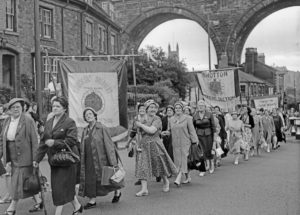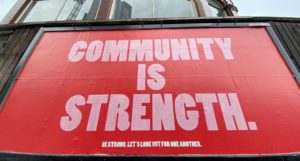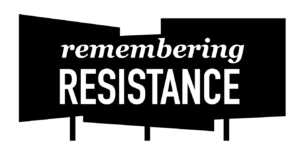Active citizenship: then and now
Dr Sarah Marsden, from the School of International Relations, and colleagues from Lancaster University, engage with activists, academics, artists, heritage, and community organisations to develop and share knowledge about how, where and when women have fought for change.

Remembering Resistance is a programme of research, events, and collaborations that looks at women’s changing relationship with protest, power, and place. It brings to life the power of stories of resistance to inspire change, focusing on women’s activism and how this has changed over time. Innovative and interdisciplinary, the programme brings together theory and methods from urban design, history, and politics. An example is Women’s March Through Time which allows viewers to navigate through 250 years of women’s activism in a virtual reality march set in Bradford.
Community is strength

The Mobilise! project seeks to encourage active citizenship and increase people’s confidence about engaging in political and civic life. In collaboration with Global Link, a Lancaster-based Development Education Centre that works with asylum seekers and refugees, Mobilise! develops knowledge and skills about how to fight for one’s rights, improve people’s lives and strengthen communities.
The project includes an Active Citizenship course. Co-designed with a team of volunteers, Global Link, and asylum seeker and refugee communities, the course is built around stories of activism collected through Remembering Resistance, and Documenting Dissent, a project led by Global Link. Drawing on research which highlights how power flows from communities to inspire activism and shape the methods women use to bring about change, the course aims to enable asylum seekers and refugee communities to feel more confident about engaging in community and civic life.
Further information about events and resources for schools and communities.
The project was awarded ‘highly commended’ in last year’s Women’s History Network Community History Prize. Funded by the National Heritage Lottery Fund, the Department for Education, Media and Sport, the Economic and Social Research Council, and Lancaster University.
